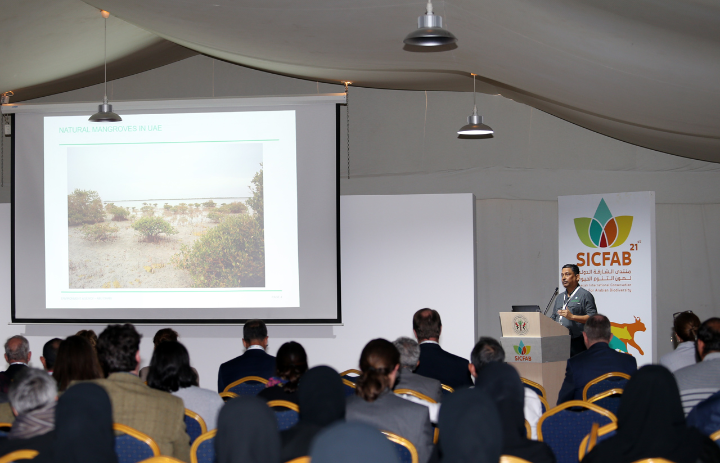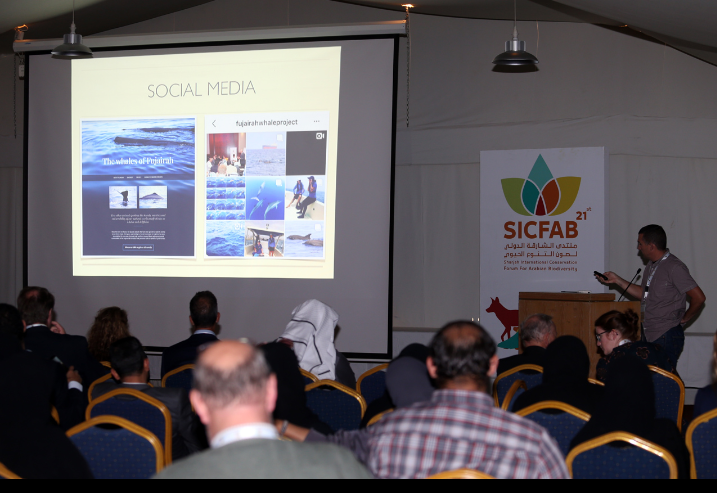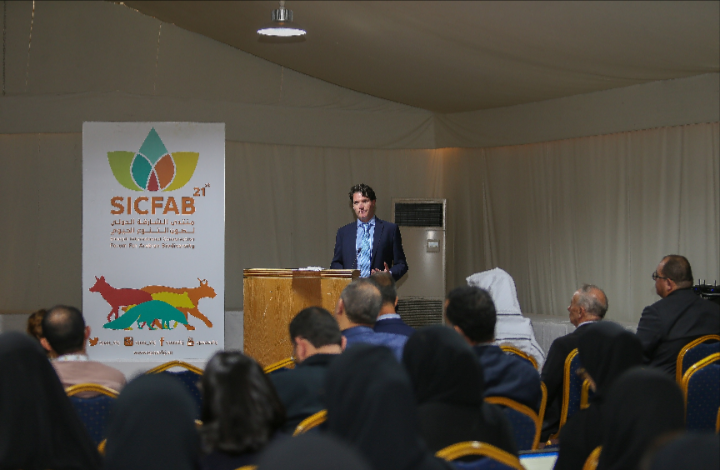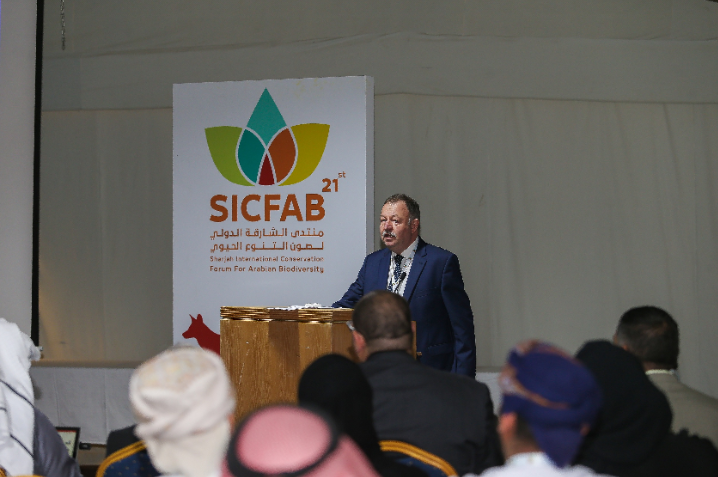آخر الأخبار
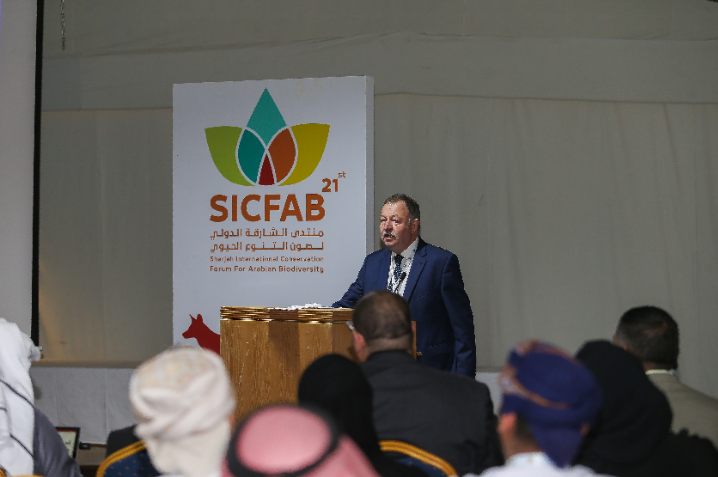
7 percent of the bony fishes in the Gulf are vulnerable or endangered, another
2 percent are near threatened, 71 percent species are listed as least
concerned and 20 percent of all species lack adequate information, listed as
data deficient
Jawharat Arab News
Sharjah, UAE – 4th February 2020
Growing prosperity and an increasing population in the Gulf states is taking a heavy toll on
coastal and marine life, stated Mr. Fareed Krupp of Senkenburg Research Institute and
Museum of Nature, Germany at the 21st Sharjah International Conservation Forum for
Arabian Biodiversity, SICFAB.
Organised by the Environment and Protected Areas Authority, EPAA, SICFAB,
which convened on February 3rd – at Desert Park in Sharjah will run until February
6
th
. Opening the forum with an introduction to key themes, Mr. Krupp highlighted the
current status and future conservation challenges for coastal and marine biodiversity.
The key marine ecosystems include soft and hard bottom subtidal habitats,
mangroves, salt marshes, coastal wetlands, seagrass, macroalgal beds, coral
assemblages and reefs among many others.
In the session Mr. Krupp highlighted marine environments, marine ecosystems,
pressures and threats, conservation needs, current infrastructure, challenges and
opportunities.
"Marine and coastal biodiversity is of paramount importance. However, habitat
destruction, overfishing and pollution, have resulted in the deterioration of the marine
ecosystem, which if not controlled will lead to the marine and coastal ecosystem
losing its capacity to provide the benefits people have relied on for millennia - food,
livelihoods, and climate regulation,” said Mr. Krupp.
According to Mr. Krupp, the key factors that pose threats to coastal and marine
biodiversity are urban, industrial and tourism developments. In his opinion, dredging,
landfill, disposal of solid waste and sewage discharge, oil spills, pollution from
aquaculture, desalination, and over exploitation of surface and groundwater have
been major reasons for mounting pressure on the coastal and marine biodiversity.
Highlighting regional threats, Mr. Krupp stated that inadequate regional cooperation,
fragmented management approaches, inadequate monitoring programs, surveillance
and law enforcement, in addition to limited budgets were prime components for
coastal and marine biodiversity destruction.
"We live on a water planet, and it is fitting that we take care of the marine and
coastal ecosystem,” stressed Mr. Krupp.
In this session, Mr. Krupp also brought to focus ICUN Red List assessments of the
marine and coastal ecosystems. It is noted that 7 percent of the bony fishes in the
Gulf are vulnerable or endangered, another 2 percent are near threatened, 71percent species are listed as least concerned and 20 percent of all species lack
adequate information, listed as data deficient. Research indicates that over a third of
the biodiversity in the waters of the Arabian Gulf could be lost by 2090, which will
hamper the future of its rich variety of marine species.
In light of the same, Dr Krupp threw positive light on the growing concern. He
explained that there is a rising commitment from governments around the region in
protecting the marine and coastal ecosystems. Several countries are willing to make
big scale commitment, which serves as a unique opportunity to make a big leap
forward in marine ecosystem protection, given that there is less than 5 percent of the
world’s oceans protected now.
Given the era we are moving into, it is imperative that humankind eliminates the
concept of destruction and focuses on saving the marine and coastal ecosystem,
which is a key focus at SICFAB this year as well.
Over the course of 21 years, SICFAB – a valuable asset for Sharjah and the EPAA – has created a paradigm shift in the environmental field locally, regionally and
globally. The Forum is a platform that allows experts from different countries to
exchange experiences and information. It contributes to the development of
knowledge about the status of nature in the UAE and the Arabian Peninsula, which
are known for their rich biodiversity. The Forum also contributes to the development
of plans to protect biodiversity in the Arabian Peninsula.

